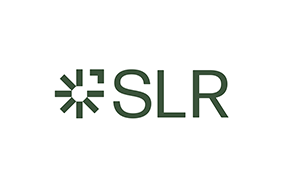Tax, Reputations and Responsibility: Where are you on the Tax Map?
Published 05-10-11
Submitted by SLR
Campaign groups, the media, and politicians have seized on tax as a topical issue in tough economic times. Multinationals face increased scrutiny over how much tax they pay and where, but most businesses have failed to articulate their position effectively.
New research by Corporate Citizenship, the specialist global corporate responsibility and sustainability consultancy, has identified the different types of tax policy and the implications of this debate for businesses. The new research includes:
- a Tax Map (see below) categorizing the six different approaches to tax ranging from risking evasion to principled obligation - where companies effectively pay more tax than the legally permissible minimum for ethical, principled, or political reasons
- an explanation of how tax has shot up the agenda and a look at the different sides of the debate
- examples of how companies such as British American Tobacco, McDonald's, and ExxonMobil have embraced new approaches to tax
- the steps companies need to go through to understand their position on tax and communicate it effectively to the outside world
The research has been produced by Corporate Citizenship and draws on the insights gained through our work with clients around the world. Many companies are facing challenging questions about tax. We believe it has become a significant issue in terms of responsible business practices and one that is not going to go away.
Peter Truesdale, Associate Director, said: "Companies need to think about a new approach to managing and communicating tax effectively. This doesn't necessarily mean companies paying more tax, but it does mean companies identifying a coherent and credible position on tax, and finding simple language to defend it in. Businesses with a reputation to defend will need to explain how they are paying the right amount of tax, consistently and in the right places, and that this is in the long-term interests of both their shareholders and society."
The Corporate Citizenship Tax Map
| Type | Definition | Example |
| 1. Risking Evasion | A policy that a Court might consider illegal, fraudulent and deceptive, such as declaring less income or hiding profits | Deliberately complicating transactions in an attempt to hide financials from authorities "“ with potentially catastrophic effects on the shareholders as Enron discovered |
| 2. Trading for Tax | The systematic creation of new business activity solely for the purpose of profiting from tax discrepancies | Creating temporary, cross-border trades with offshore entities, designed solely to profit from tax differences |
| 3. Surprising Structures | Widespread use of structures and ad hoc decisions to minimize tax, often resulting in activity that bears little relation to the underlying economic reality. The normal course of business is distorted and the results would appear surprising to an impartial outsider | Realizing profits in a new, offshore subsidiary when little economic activity actually takes place there. Moving company headquarters to a new country in which there is no business history |
| 4. Balanced Compliance | Tax is minimized within the normal course of business activity and considered as one component of any business decision. Decisions have a genuine commercial purpose separate from tax - new transactions or subsidiaries are not created solely for tax purposes | Choosing to realize profits from a one-off transaction in the lowest tax jurisdiction when faced with a choice between two or more places. Locating centralized procurement in the lower of several tax jurisdictions with which the company has established operations |
| 5. Active Engagement | Systematic and consistent declaration of tax to match underlying commercial activities. Tax is paid where profits are made - aiming to follow the spirit as well as the letter of the law. Tax is still minimized within this framework, but not at the expense of one country over another | Deciding how much tax to pay relative to the proportion of sales that the business makes in different jurisdictions worldwide |
| 6. Principled Obligation | Effectively paying more tax than the legally permissible minimum in certain jurisdictions for ethical, principled or political reasons | Deciding not to save tax by relocating company headquarters overseas due to economic patriotism |
A copy of the report can be downloaded here: http://www.corporate-citizenship.com/archive/tax-corporate-responsibility-issue.

SLR
SLR
SLR are global leaders in full-spectrum sustainability solutions: providing clients with strategic advice and on the ground technical support, partnering with them in Making Sustainability Happen. We achieve this by having a team of specialist advisors and technicians, who support our clients to tackle some of the world's most complex sustainability challenges, by utilising our collaborative and entrepreneurial One Team culture.
Contact: https://www.slrconsulting.com/contact/
More from SLR

